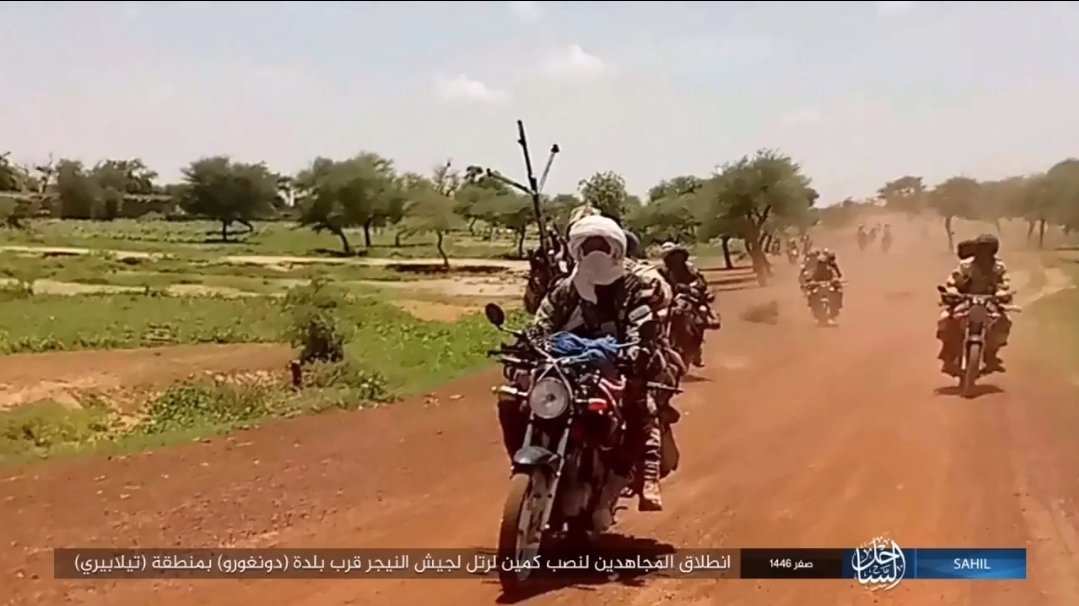Niger’s ruling junta, which took power in July 2023 with promises to restore security to areas plagued by extremist violence, is facing increasing challenges as the situation worsens. Despite their assurances, attacks on both soldiers and civilians continue to escalate, leading to mounting casualties and chaos.
Since the junta’s takeover, extremists linked to the Islamic State have killed approximately 1,600 civilians, a stark increase from 770 before the coup, according to the Armed Conflict Location and Event Data project. Meanwhile, al-Qaida’s affiliate, Jama’at Nusrat al-Islam wal-Muslimin (JNIM), has significantly ramped up its operations in southwestern Niger’s Tillaberi region, which borders Burkina Faso and Mali. These neighboring countries, also under junta rule, are similarly struggling to curtail extremist activity after their own democratic governments were ousted.
Extremists have targeted convoys bringing vital supplies into the landlocked nation, particularly trucks transporting food and commercial goods from Togo’s ports. Drivers often wait weeks for military escorts to reach the capital, Niamey. Terrorists, typically on motorcycles, use swift and elusive tactics to attack military and civilian convoys, making it difficult for forces to respond effectively.
The United Nations has described recent violence as “extremely lethal,” particularly in the Tillaberi region, where both soldiers and civilians are increasingly vulnerable to terrorist attacks. In November 2024, a dozen extremists on motorcycles ambushed a company working on a dam project near Kandadji, killing three workers. The assailants fled to Mali, where the Malian government claimed to have killed 10 in an airstrike.
In December, extremists attacked the village of Libiri, killing 21 people, looting homes, and setting fire to buildings. Just two days later, 18 more people were killed in the nearby village of Kokorou. Hadjara Zibo, a survivor from Libiri, recalled the terror: “If they reached us, they could rape and kill us,” she told The Guardian. Zibo’s husband was killed in a previous attack in 2021, and several women from the community were kidnapped by the extremists.
“I’ve seen men killed in front of the women,” Zibo said. “Women face horror and humiliation, and with no help from the junta, we are left at the mercy of the jihadists.”
The Nigerien military is also suffering heavy losses. Two recent attacks on Chatoumane, a town in Tillaberi, left at least 90 soldiers and 50 civilians dead, according to witnesses and the BBC. The attackers, disguised as civilians, ambushed soldiers at a weekly market. Military personnel, in an effort to avoid harming civilians, refrained from returning fire.
The junta’s response was to downplay the attacks, claiming only 10 people had died and accusing the media of spreading false reports aimed at undermining morale. Shortly after, the junta expelled the BBC and banned its French and Hausa broadcasts in the country.
This marks a shift in the junta’s approach, moving away from cooperation with France and the United States and instead aligning with Russian mercenaries from the Africa Corps (formerly the Wagner Group). Experts have warned that the junta’s reliance on such forces has led to an increase in violent actions and a further decline in transparency.
Rahmane Idrissa, a political scientist from Niger who teaches at Leiden University in the Netherlands, observed that the junta’s strategy to tackle the growing insurgency remains unrefined: “They don’t have a real strategy, except the use of sheer force.”
